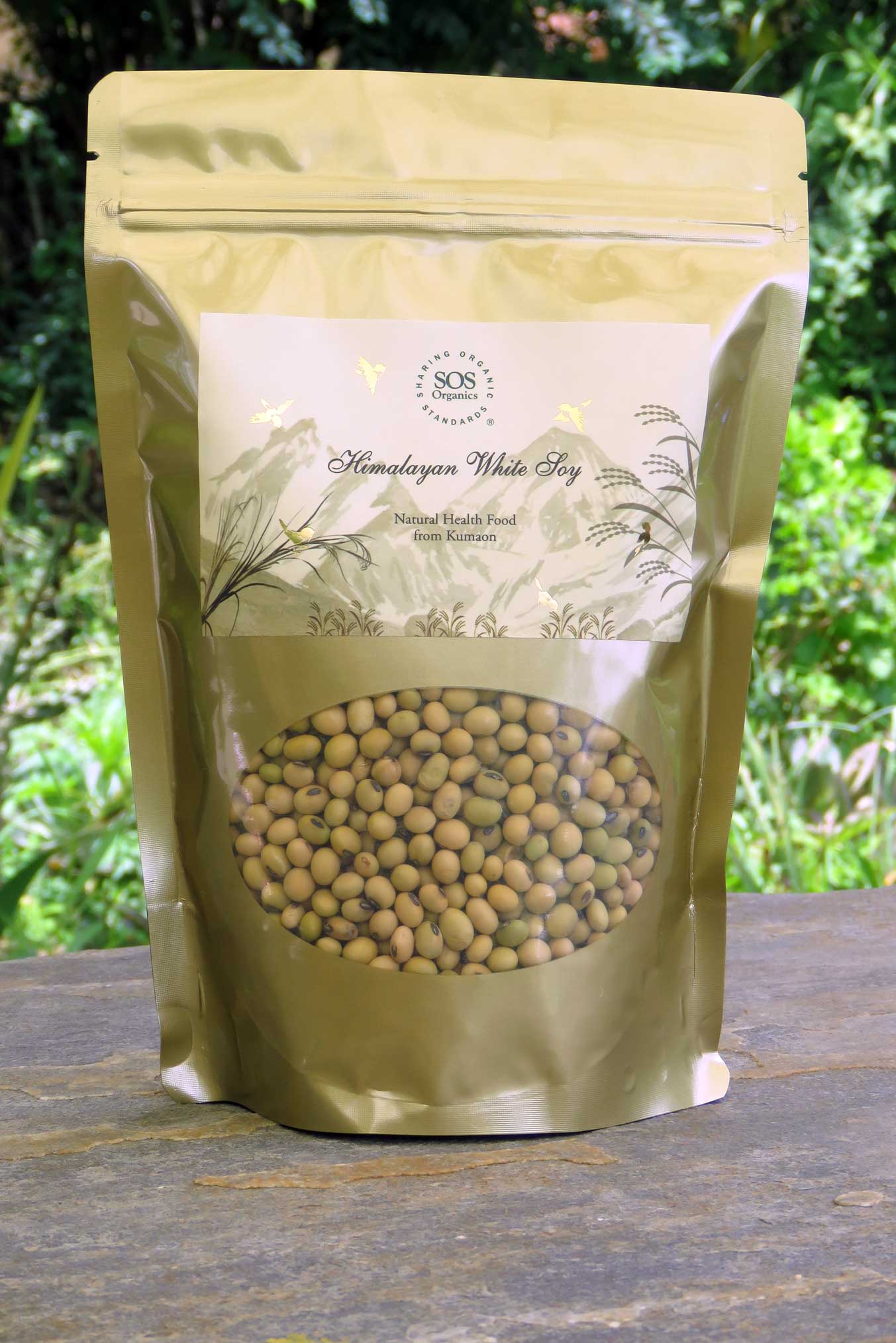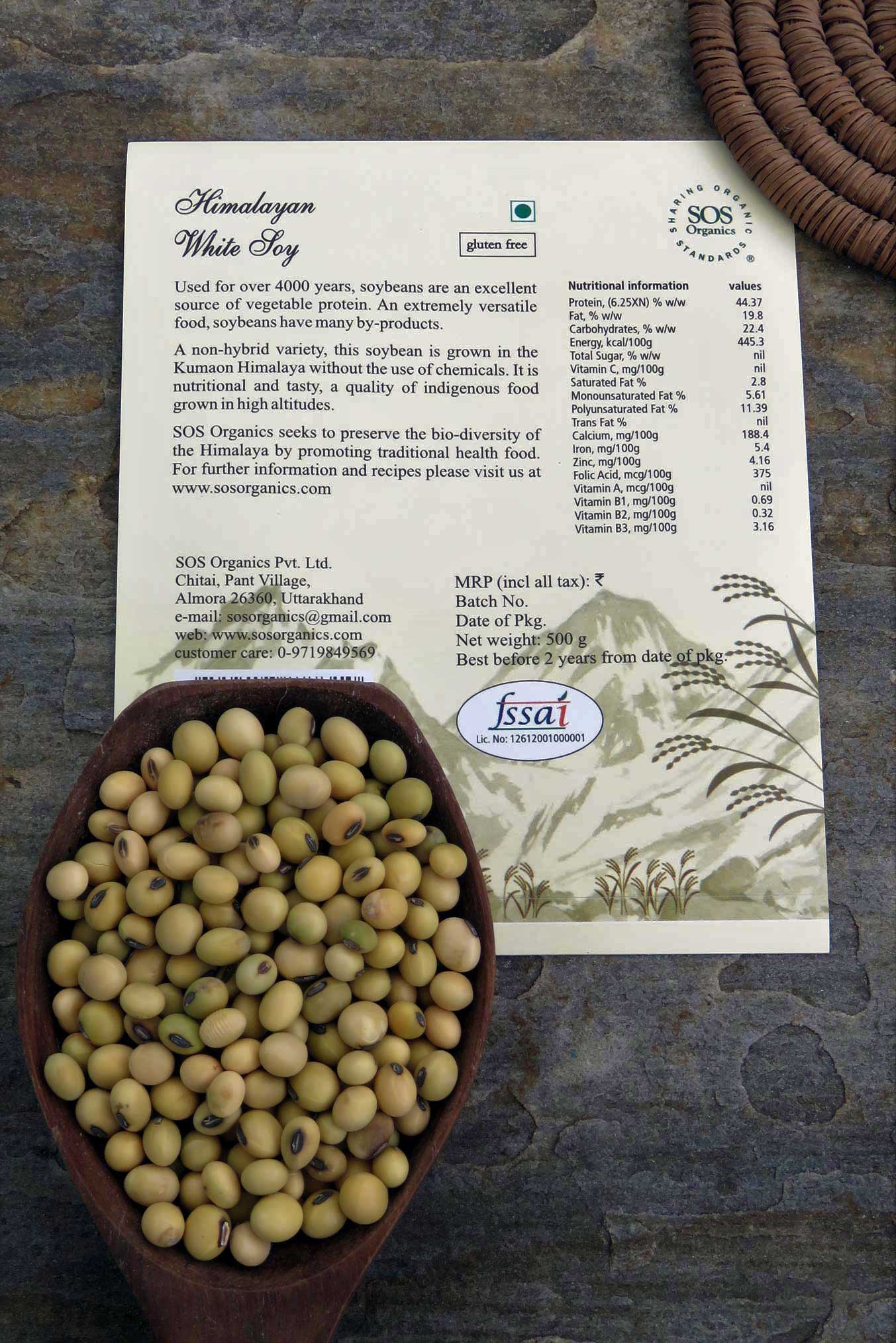Himalayan White Soy: A Nutrient-Rich Superfood with 4000 Years of Legacy
With a legacy that spans over 4000 years, Himalayan White Soy has remained a cherished staple in diets across diverse cultures. Renowned for its impressive nutritional profile, this soybean variety stands as an exceptional source of vital nutrients. Let’s delve into the remarkable advantages of Himalayan White Soy and why it continues to be revered for its healthful properties.
1. Abundant Source of Vegetable Protein:
Himalayan White Soy is a treasure trove of vegetable protein. Packed with essential amino acids, it serves as an excellent plant-based protein option for those seeking a sustainable and health-conscious alternative to animal-based proteins.
2. Wholesome and Nutrient-Rich:
This remarkable soybean variety boasts a nutrient-dense composition. Enriched with essential vitamins, minerals, and dietary fiber, Himalayan White Soy contributes to overall well-being and nourishment.
3. Versatile Culinary Potential:
Himalayan White Soy offers boundless culinary possibilities. From soy milk to tofu, tempeh, soy flour, and more, this soybean variety provides a diverse array of delicious and nutritious options for various dishes.
4. Natural Cultivation for Purity:
Cultivated in the pristine Himalayan region, Himalayan White Soy grows naturally without the use of harmful chemicals or pesticides. As a result, the soybeans maintain their purity, ensuring a healthful and unadulterated food source.
5. Supports Heart Health:
Incorporating Himalayan White Soy into the diet may promote heart health. Studies suggest that soy products can help lower LDL cholesterol levels and reduce the risk of heart disease, contributing to cardiovascular well-being.
6. Bone-Nourishing Properties:
Himalayan White Soy contains essential minerals like calcium and magnesium, which are crucial for maintaining strong and healthy bones. Regular consumption of soy-based foods may help fortify bone health and prevent conditions like osteoporosis.
7. Hormonal Balance Benefits:
The presence of phytoestrogens in White Soya, natural plant compounds with estrogen-like properties, may contribute to regulating hormonal balance, especially during menopause in women.
8. Digestive Well-Being:
The dietary fiber found in White Soya aids in promoting healthy digestion and regular bowel movements. Including soy-based foods in the diet can support a well-functioning digestive system.
Himalayan White Soy, a celebrated soybean variety with its rich history and exceptional nutritional value, continues to be a prized superfood. As an abundant source of vegetable protein and a host of essential nutrients, it offers an array of benefits for your health and culinary creativity. Embrace the nourishing goodness of Himalayan White Soy and experience the incredible advantages it brings to your overall well-being. Make the most of this versatile soybean variety and elevate your nutrition while relishing its delightful taste and healthful contributions.
Sourced from organic produce and hand-sorted in Himalayan villages, all our produce is grown naturally without the use of harmful chemicals in our effort to preserve the biodiversity of the Himalayas and to sustain indigenous crop.
vegetarian, gluten free
(net weight: 500 gram, packed in a golden resealable pouch)
Why eat Organic
Throughout history, unadulterated foods have been the foundation of the human diet. However, in the mid-20th century, chemical and factory farming became prevalent to increase crop yields. Unfortunately, these practices have resulted in significant environmental and economic imbalances, affecting the health of animals, plants, micro-organisms, soil, oceans, atmosphere, and humans. Even those with technology and wealth are not immune to the adverse effects of an unhealthy environment.
Maintaining good health has become a challenge in today’s polluted urban environment due to contaminated water, air, and food. As our urban population grows, we see the negative impacts of rapidly changing lifestyles, poor diets, and lack of exercise. When we consume polluted food, we carry that pollution in our bodies, accumulating toxins and developing diseases such as obesity, diabetes, and heart disease.
Children are particularly vulnerable to agricultural toxins, as they consume more than their size. Shockingly, the average child is exposed to four times more cancer-causing pesticides found in food than the average adult. It’s time to prioritise clean, unadulterated food and recognise the importance of a healthy environment for the well-being of all.









